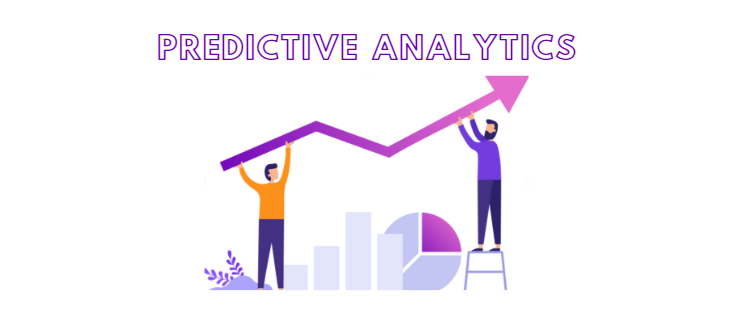Companies nowadays rely on data-driven decision-making, and one of the most formidable tools in their arsenal is predictive analytics. This cutting-edge technology is revolutionising the way businesses operate and strategise. In this blog post, we’ll explore the role of predictive analytics in shaping modern business strategy and delve into why it’s considered a game-changer.
The Evolution of Predictive Analytics
Predictive analytics is not a new concept; it has been around for decades. However, its prominence and effectiveness have grown exponentially with the advent of big data and advanced machine learning techniques. In the past, businesses made decisions based on historical data and educated guesses. Today, predictive analytics harnesses the power of data, algorithms, and statistical models to forecast future events and trends.
Predictive analysis goes beyond simply reporting past performance; it anticipates what’s to come. This technology uses various techniques such as regression analysis, machine learning, data mining, and artificial intelligence to generate insights that inform strategic decisions.
The Role of Predictive Analytics in Business Strategy
1. Improve decision-Making
Predictive analytics empowers businesses to make more accurate and timely decisions. By analysing past data and identifying potential future scenarios, organisations can anticipate market changes, customer preferences, and operational challenges. This foresight enables leaders to adjust their strategies proactively, minimising risks and capitalising on opportunities.
2. Enhanced Customer Experince
In the age of personalisation, understanding your customers is paramount. Predictive analytics helps businesses gain a deeper understanding of customer behavior, preferences, and buying patterns. Armed with this knowledge, companies can tailor their products, services, and marketing efforts to meet individual customer needs, ultimately enhancing the customer experience and driving loyalty.
3. Efficient Operations
Predictive analytics extends its benefits beyond the customer-facing aspects of a business. It can optimise internal processes by predicting equipment failures, supply chain disruptions, or employee performance issues. This allows organisations to proactively address operational challenges, reduce downtime, and cut costs.
4. Revenue Growth
By accurately forecasting demand, pricing strategies, and market trends, predictive analytics can boost revenue growth. Businesses can identify the most profitable market segments, optimise pricing strategies, and even predict which products or services are likely to be successful in the future.
5. Risk Management
Risk is an inherent part of business, but predictive analytics helps mitigate it. Whether it’s credit risk assessment, fraud detection, or identifying potential compliance issues, predictive models can flag risky situations before they escalate, protecting the company’s reputation and bottom line.
6. Product Development
Innovative product development relies on understanding market needs and predicting future trends. Predictive analytics can analyse market data, consumer sentiment, and emerging technologies to guide product development efforts, ensuring that businesses stay ahead of the competition.

Predictive analytics has emerged as a crucial tool in modern business strategy. It empowers organisations to make informed decisions, enhance customer experiences, optimise operations, drive revenue growth, manage risks, and innovate product development. In an era defined by data, those who harness the power of predictive analytics will have a significant advantage in shaping the future of their businesses. It’s not just a tool; it’s a strategic imperative for success in the digital age. As businesses continue to evolve, embracing predictive analytics is not an option; it’s a necessity.

